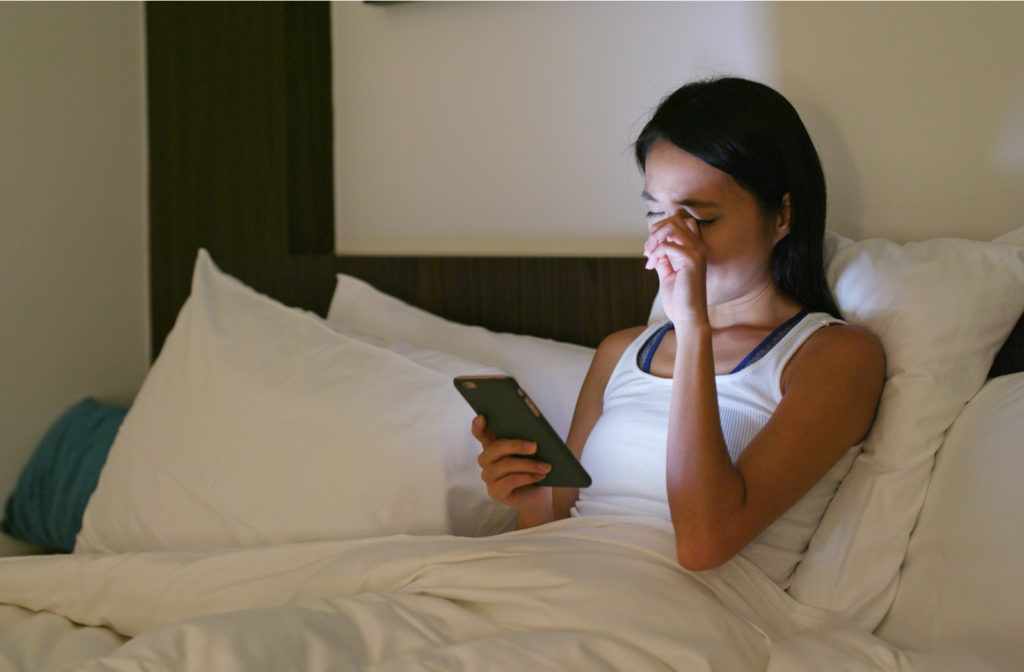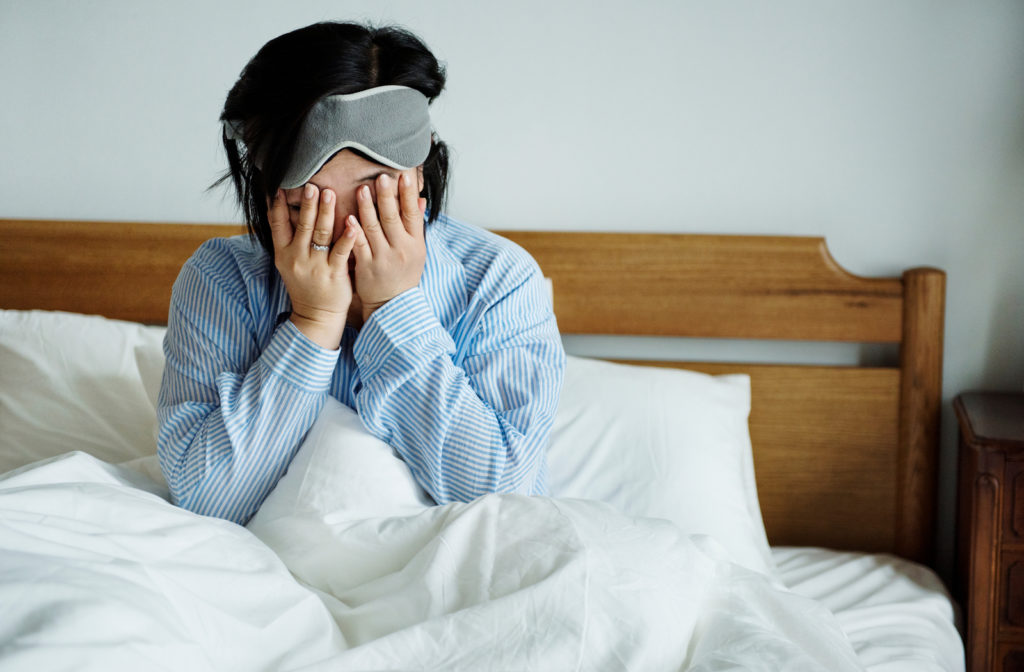Dry eyes are a prevalent, uncomfortable and irritating condition. Patients commonly experience dryness when their eyes are not producing tears adequately, or when tears evaporate too quickly. Symptoms of dry eye can include:
- Stinging
- Gritty feeling
- Scratchy and uncomfortable
- Burning
- Feeling like there’s something in your eye
Patients with dry eyes may experience flare-ups at different times of the day or worsening symptoms at night. Waking up with dry eyes can leave you feeling unrested, and unprepared for the day ahead. It’s definitely not the best way to kick off your morning!
At Aurora 2020, we work closely with our patients to treat dry eye, and eliminate the morning scratchiness that comes with it. Typically, our first step involves determining the cause of your dryness, then providing appropriate treatments.
If you’re waking up with dry, irritated eyes in the morning, contact our team for an appointment. We’ll work hard to provide the relief you need!
The Cause of Morning Dry Eye
You can wake with dry eyes for many reasons, and sometimes there may be more than one cause.
Dehydration
You already know this, but not drinking enough water can wreak havoc on your body– your eyes are no exception! Frequent dry eyes can result from dehydration, so make sure you’re drinking enough fluid during the day to keep your eyes moist overnight.
Inadequate Tear Production
Your eyes should be working to flush substances while you sleep at night, and if they cannot produce enough tears, it can result in dry eyes upon waking.
Tear production can diminish due to several factors, like:
- Age
- Certain medical conditions
- Side effects from certain medications
- Environmental factors
- Windy or dry climates
Nocturnal Lagophthalmos
Nocturnal lagophthalmos is the inability to close eyelids fully while sleeping. Studies suggest that a weakness in the facial nerve primarily causes this condition.
Facial nerve weakness can be caused by:
- Trauma to the jaw or skull
- Viral infection
- Complications from Lyme disease
- Bell’s palsy
When eyes cannot close completely, it may result in rapidly evaporating tears and inadequate tear production, causing dry eyes.

Screen Time Before Sleeping
If you use a screen before sleeping, it can dry your eyes. We blink less often while using digital devices, which can cause our tears to evaporate more rapidly.
Thyroid-Related Symptoms
Graves’s disease is a form of hyperthyroidism, and a common symptom of this condition is bulging eyes. Protruding eyes can result in difficulties with closing eyes while sleeping. Eyes that cannot close properly are at risk of excessive dryness.
Side Effects of Medication
Certain medications can affect tear production, and result in irritated, dry eyes when you wake up. Medicines that may exacerbate dry eyes include:
- Cold medicines like decongestants and antihistamines
- Drugs for hormone therapy
- Diuretics
- Beta-blockers
- Anti-depressants
- Pain Relievers
- Certain acne medications
If you’re temporarily taking medication with dry eye side effects, the symptoms should gradually resolve once you’ve completed your dosage.
If you’re taking medication for chronic health conditions, read the labels closely, and speak with your optometrist about an alternative with side effects that don’t include dry eyes.
Aging
Tear production declines as we age, and dry eye becomes more common in people over 50.
What Can I Do About My Dry Eyes?
First things first – Let’s find out the cause of your dry eyes.
Book a comprehensive eye exam with your optometrist, and discuss your symptoms with them directly. They’ll look closely at your eyes to search for conditions, or anything that may cause a lack of tear production.
Remember to bring a list of your current medications and nutritional supplements!
Your optometrist will recommend a treatment based on the cause of your symptoms. It may take a little bit of trial and error to find the right solution, but your eye care team will work hard to ensure you start your day with happy and refreshed eyes.
Treatments may include:
- Changes to prescriptions: Changing medications and making dosage adjustments and different medications may help alleviate morning dry eye symptoms.
- Lifestyle changes: A couple of small changes can make a huge difference in your morning. Try things like:
- Using a humidifier
- Keeping the fan or air conditioner away from sleeping areas
- Keeping windows closed overnight on smoky or windy days
- Avoiding the use of computers and digital screens at night
- You knew we were going to say this, right? DRINK MORE WATER!
- Eye drops: Over-the-counter eye drops can be beneficial for mild cases of dry eye, but your optometrist may recommend a heavier ointment for overnight use.
- Eyelid treatments: Your eye care team may suggest certain ointments to help reduce inflammation, or the use of warm compresses to break down blockages and alleviate dry eye symptoms.
- Specialized sleeping masks: Your optometrist may be able to recommend a sleeping mask that will help your eyes feel more refreshed in the morning.
- Eyelid surgery: Patients with severe cases of nocturnal lagophthalmos may benefit from eyelid surgery to alleviate symptoms of dry eye.
Relief is Waiting
You don’t need to live with the irritating symptoms of dry eyes!
If you’re frequently experiencing dry eyes in the morning, contact our team at Aurora 2020 for a comprehensive eye exam and dry eye consultation. You deserve to start your day feeling comfortable and refreshed, and we can help. Don’t be shy– Reach out to us today.



